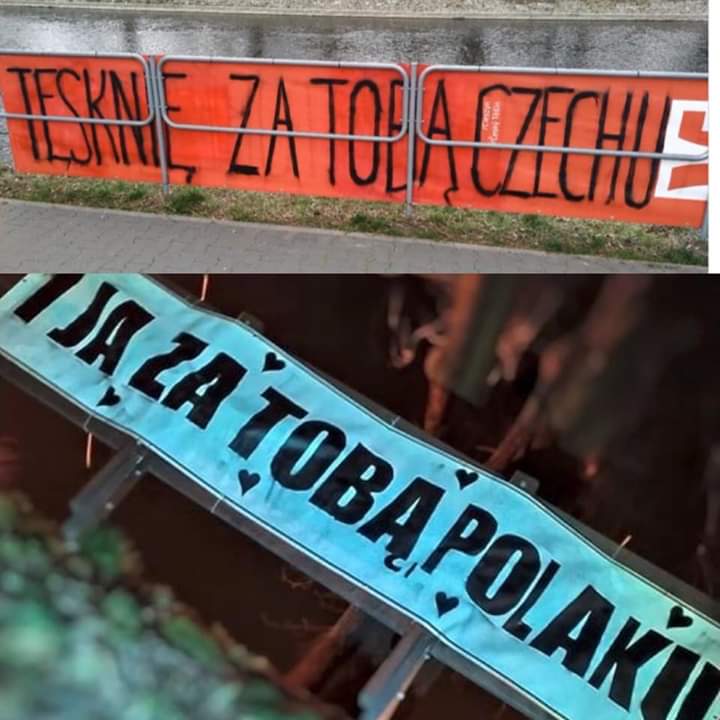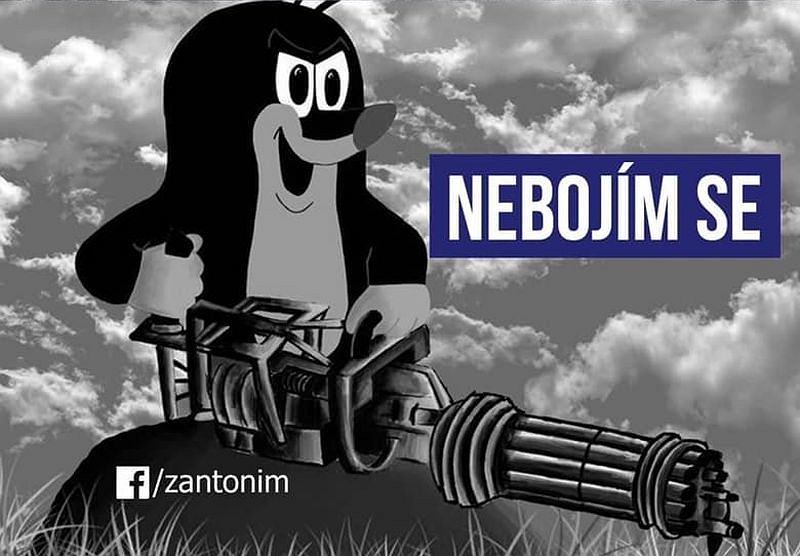If you feel like, you can start such a thread, why not.
Nobody?
Ok.
Historical reason 1
similarly to Polish German case, Czechs had a land conflict with Poles. Of course I don`t mean the ancient times when the medieval Czech prince invaded Polish territory, occupied the capital and stole the remains of saint Adalbert. I mean the times 100 years ago when, after WW1, new states appeared on the map of Europe and Czechs claimed the same area as Poles, namely Tsesin Silesia or Zaolzie region. First, in 1919, Czechs took over Zaolzie after a quick invasion. Later, in 1938, Poland recaptured the region from weakened Czechs, already deprived of Sudeten region by Hitler. I suppose Czechs prefer to ignore 1919 and only remember the events of 1938, which indeed don`t evoke positive feelings.
Read about the conflict: en.wikipedia.org/wiki/Zaolzie
Historical reason 2
the invasion of Czechoslovakia by Warsaw Pact countries in 1968 was another national trauma for Czechs. Unfortunately,. Poland took part in it, although it didn`t have to because some communist countries refused and nothing happened, e..g, Romania. But Polish communist leaders feared that communism-free Czechoslovakia might get close to Germany and Western Europe and that was against Polish strategic interests then. Most Czechs understood that Poles had no choice and were prone to forgive that act. Unfortunately, the behaviour of Polish soldiers only made the situation worse, because they didn`t treat Czechs too nicely - there was an infamous killing of Czech civilians in Jicin by a drunk Polish soldier. Although Polish democratic governments apologised a few times for the invasion, I suppose some Czechs might still bear a grudge.
Sociological-psychological reason 3A
although they are closely related Slavic nations, Czech and Polish national characters seem different. Poles are said to be rebellious, always ready to fight for independence or resist foreign occupation. Czechs on the contrary - easygoing, do not take instantly to arms to fight for freedom but prefer to wait and see what happens. Hans Frank, the governor general of occupied Poland, once said:
In Prague, big red posters were put up on which one could read that seven Czechs had been shot today. I said to myself, 'If I had to put up a poster for every seven Poles shot, the forests of Poland would not be sufficient to manufacture the paper.'
Read about Hans Frank: en.wikipedia.org/wiki/Hans_Frank
I suppose some Czechs might not like this Polish impetuousness and moments when Poles look down on Czechs while discussing war merits. Yes, but let`s not forget that Prague survived the war and is an architectonic pearl while Warsaw was razed to the ground and rebuilt as a socialist city.
Sociological - psychological reason 3B
Also, Czechs are said to have a sense of humour, I mean the ability to laugh not only at others but also oneself. Poles are great at laughing at others but when laughed at, they immediately get tense and offended. Czechs seem to be more relaxed, and it can be seen in their culture, e..g, books or films (Czech comedies are very popular in Poland).
Linguistic reason 4
Czechs might not like when Poles deride their language which indeed sounds funny to the Polish ear. Some Czech words are the same as Polish ones but have a different meaning - cerstvy means fresh in Czech and stale in Polish.
What else?




